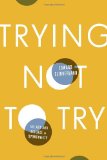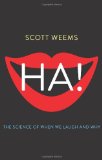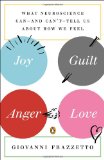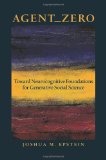new book – ‘Trying Not To Try: The Art and Science of Spontaneity’ by Edward Slingerland
March 4, 2014
Trying Not to Try: The Ancient Chinese Art and Modern Science of Spontaneity by Edward Slingerland (Crown, 2014)
(kindle ed.), (amazon.co.uk), (UK kindle ed.)
Book description from the publisher:
A deeply original exploration of the power of spontaneity—an ancient Chinese ideal that cognitive scientists are only now beginning to understand—and why it is so essential to our well-being
Why is it always hard to fall asleep the night before an important meeting? Or be charming and relaxed on a first date? What is it about a politician who seems wooden or a comedian whose jokes fall flat or an athlete who chokes? In all of these cases, striving seems to backfire.In Trying Not To Try, Edward Slingerland explains why we find spontaneity so elusive, and shows how early Chinese thought points the way to happier, more authentic lives. We’ve long been told that the way to achieve our goals is through careful reasoning and conscious effort. But recent research suggests that many aspects of a satisfying life, like happiness and spontaneity, are best pursued indirectly. The early Chinese philosophers knew this, and they wrote extensively about an effortless way of being in the world, which they called wu-wei (ooo-way). They believed it was the source of all success in life, and they developed various strategies for getting it and hanging on to it.
With clarity and wit, Slingerland introduces us to these thinkers and the marvelous characters in their texts, from the butcher whose blade glides effortlessly through an ox to the wood carver who sees his sculpture simply emerge from a solid block. Slingerland uncovers a direct line from wu-wei to the Force in Star Wars, explains why wu-wei is more powerful than flow, and tells us what it all means for getting a date. He also shows how new research reveals what’s happening in the brain when we’re in a state of wu-wei—why it makes us happy and effective and trustworthy, and how it might have even made civilization possible.
Through stories of mythical creatures and drunken cart riders, jazz musicians and Japanese motorcycle gangs, Slingerland effortlessly blends Eastern thought and cutting-edge science to show us how we can live more fulfilling lives. Trying Not To Try is mind-expanding and deeply pleasurable, the perfect antidote to our striving modern culture.
Google Books preview:
See also: Book on Facebook







